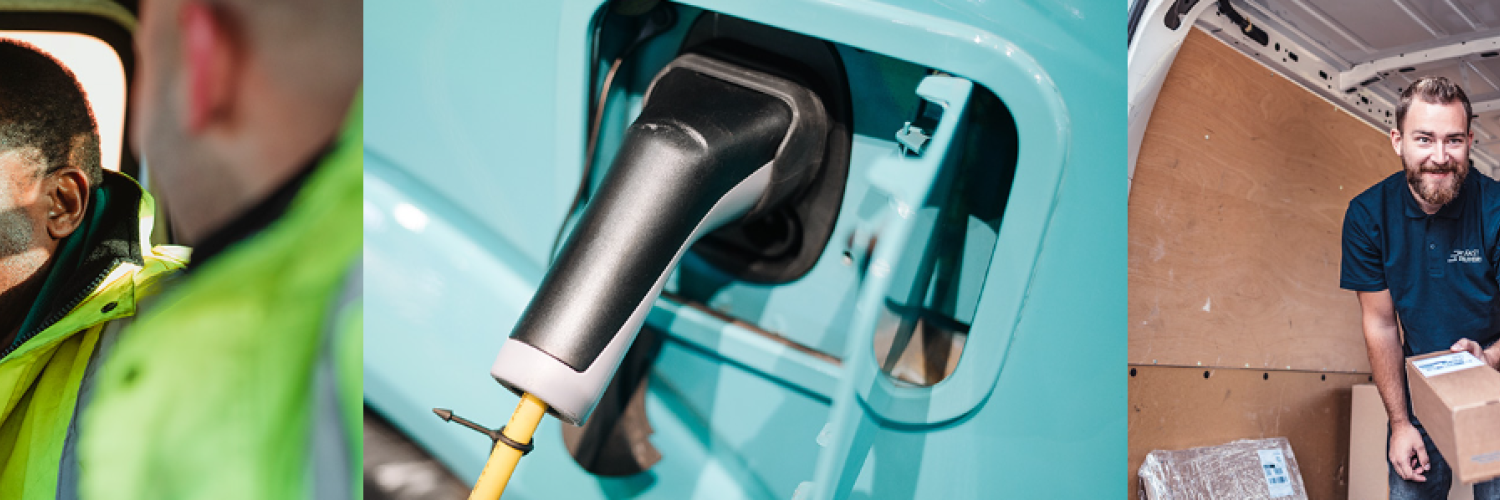
ELECTRIC VEHICLES
Essential facts to help you switch
With a ban on the sale of new petrol and diesel vehicles from 2030, more van drivers than ever are switching to electric. We're here to help you make an informed decision and support you once you’re ready to go electric. Here are some of the benefits.
ㅤ
Fuel
Electricity costs less than the equivalent range in petrol or diesel, and servicing and maintenance costs tend to be cheaper for Electric Vehicles (EVs). This is primarily because there are fewer moving parts.
Environment
EVs have a positive effect on the environment by cutting CO2 emissions. There are also financial benefits to driving compliant vehicles in low-emission and clean-air zones.
Last-mile efficiencies
Electric vans offer a great option for last-mile delivery – something that's been growing significantly recently as home deliveries increase.
CHARGING
COST
TEMPERATURE
DUTY CYCLE
PAYLOAD
If you'd like to know more, or you need help working out whether electric vans could work for your business, we can help - just get in touch.
Helping you make the switch
Thinking of changing to an electric van?
Our experts can guide you through the best options to fit your needs - get in touch to find out more.
Yes - we've partnered with British Gas to bring you a great smart home charging offer with hassle-free installation at a suitable premises. Contact us to find out about our pricing.
There's no fundamental difference between leasing an electric van and a petrol or diesel van apart from the vehicle itself.
If you have taken Maintenance Package or Arval Total Care, the AA, our recovery partners, will attend to your van at the roadside and, as with any petrol or diesel van, if it cannot be repaired there and then, they will recover it to an agreed location.
Each manufacturer publishes official range and performance figures for their vans, so contact them for details.
EVs are still more expensive in terms of the upfront cost. However, it's crucial to look at the whole-life cost (WLC) of an electric vehicle compared to a petrol or diesel. The overall running costs of EVs are generally more economical than traditional cars over the lifetime of the vehicle.
Although an electric motor is lighter than a diesel engine, the additional weight of the batteries can sometimes mean that the payload of an electric van is less than a diesel equivalent.
Temperature affects the range of all battery-powered vehicles, so an electric van will have a lower range in the winter, compared to the summer.
